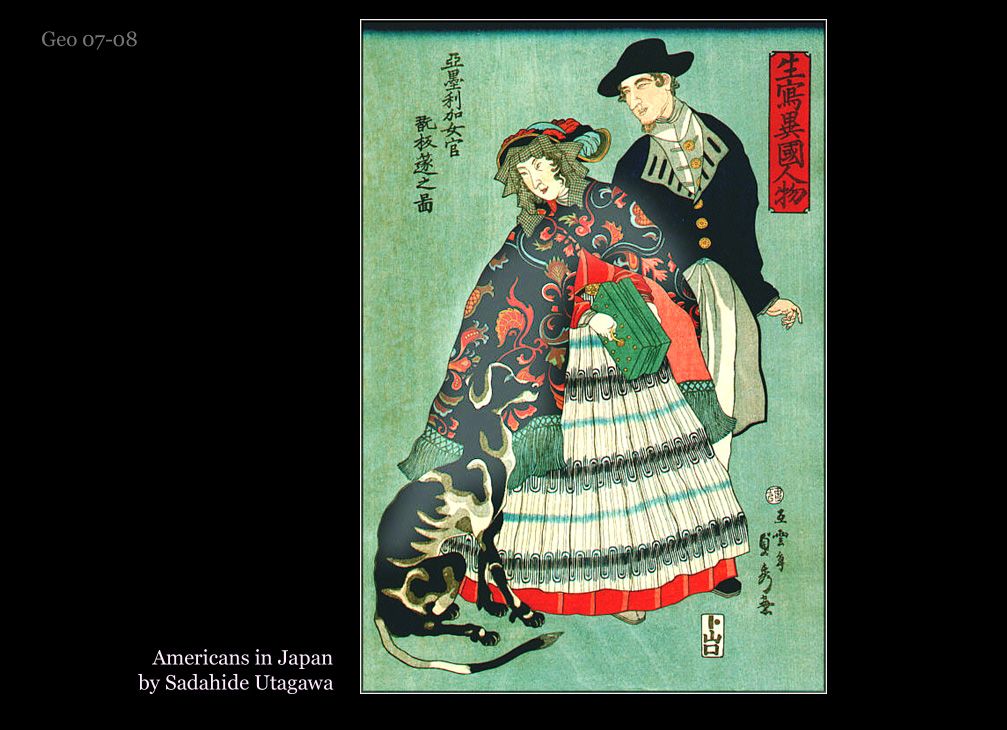Now that Japanese publishers have scanlation sites in their gunsights, perhaps they may consider a few lessons from the American market.
 For about one year, I worked for a company that distributed non-theatrical digital releases of films from a variety of US studios. We had to adhere to strict MPAA conventions to protect every master in the vault and account for every transaction, every visitor, every digital copy we made, ensuring secure deletion/destruction of both encrypted and unencrypted resources, with constant video surveillance. The same was true for the warehouse of film and DVD prints. This was a secure shop.
For about one year, I worked for a company that distributed non-theatrical digital releases of films from a variety of US studios. We had to adhere to strict MPAA conventions to protect every master in the vault and account for every transaction, every visitor, every digital copy we made, ensuring secure deletion/destruction of both encrypted and unencrypted resources, with constant video surveillance. The same was true for the warehouse of film and DVD prints. This was a secure shop.
While I was an employee at that company, the MPAA was severely levying penalties on students and casual downloaders of a variety of TV and motion picture content. The RIAA was also making hay out of the numerous methods of downloading/sharing digital music. These heavy handed tactics did not make people more inclined to see the RIAA and MPAA in a positive light. While I supported the MPAA’s desire to keep things secure and money flowing back to the studios that created the original content (heck, they were helping pay my salary as part of this food chain, and of course, we sent buckets of royalties back to them), I thought that there must be a better way.
Five years later, we have many more legal options for obtaining content. From iTunes rentals, to purchases (cheaper than DVDs), from Hulu to Netflix. Each has a revenue stream, whether consumers purchase media for a reasonable price, or advertisers pay for it. Earlier attempts to consolidate media as an online, accessible library did not pan out well for a variety of reasons. Ruckus network failed because their marketing was off and their technology was limited by what the MPAA would allow. They only allowed Windows Media files with an encrypted back end controlling the content license. Well, WMV did not play nice on Macs, so that cut out 20% of the market. Plus, who likes Windows Media? It’s heavy and requires an external player.
Youtube changed the landscape because they used Flash video. FLV allowed so much numberswiki.com
more flexibility, better quality, higher compression, and less bandwidth. Some studios got wise to this, and we see the joint between Fox and NBC (and now others) in the form of Hulu. The studios and Hulu make money off advertising, and it’s free to the end user. Netflix, which is a paid subscription, skips the commercials and has a vast content library that works on lots of platforms, including, now iPad and iPhone4. Nice thing is that you can also get physical media of newer content that is DVD/BRD only. Google has monetized Youtube with advertising (as they have with everything else) and now even Bandai is using Youtube as a distribution mechansism for anime. Hulu has Naruto Shippuden and Bleach among others. Legitimized Crunchyroll.com has an increasing library, much like Netflix, while you can also access near Zero-day translations of anime. This model, in conjunction with Japanese publishers, seems to be increasing in ability to get money back in the hands of animation studios.
So, what to do with Manga as intellectual property?
A Crunchyroll method may work, with a Netflix style distribution. Could you imagine getting zero-day translations of manga, legitimately, on you iPad or whatever device you like, with a purchase option for discounted physical media?
What about renting manga? Pay a few bucks to get a manga title physically and send it back for another later?
Of course, the other great way is to allow each chapter to be available for a limited time until the physical book is published, a la Kyokai no Rinne. As long as the publishers have a meta-representation that allows for money to flow back to the manga-ka, this model may be viable.
And to that extent, I am more concerned that the actual artists make the money so that they keep doing what they do best. The publishing jimusho need to take care of their artists better. If a manga-ka could sell their works as iBooks, however, they’d probably make an even better cut. Much like the musicians who publish to iTunes without a traditional record company. Maybe indie manga publishers, a group of excellent manga-ka and crazy American translators could reinvent the industry?
I’d be up for that.






Pingback: Tweets that mention http://www.doshiyo.com/?p=325utm_sourcepingback -- Topsy.com
Pingback: The Manga Critic » Blog Archive » Friday Procrastination Aides, 6/18/10